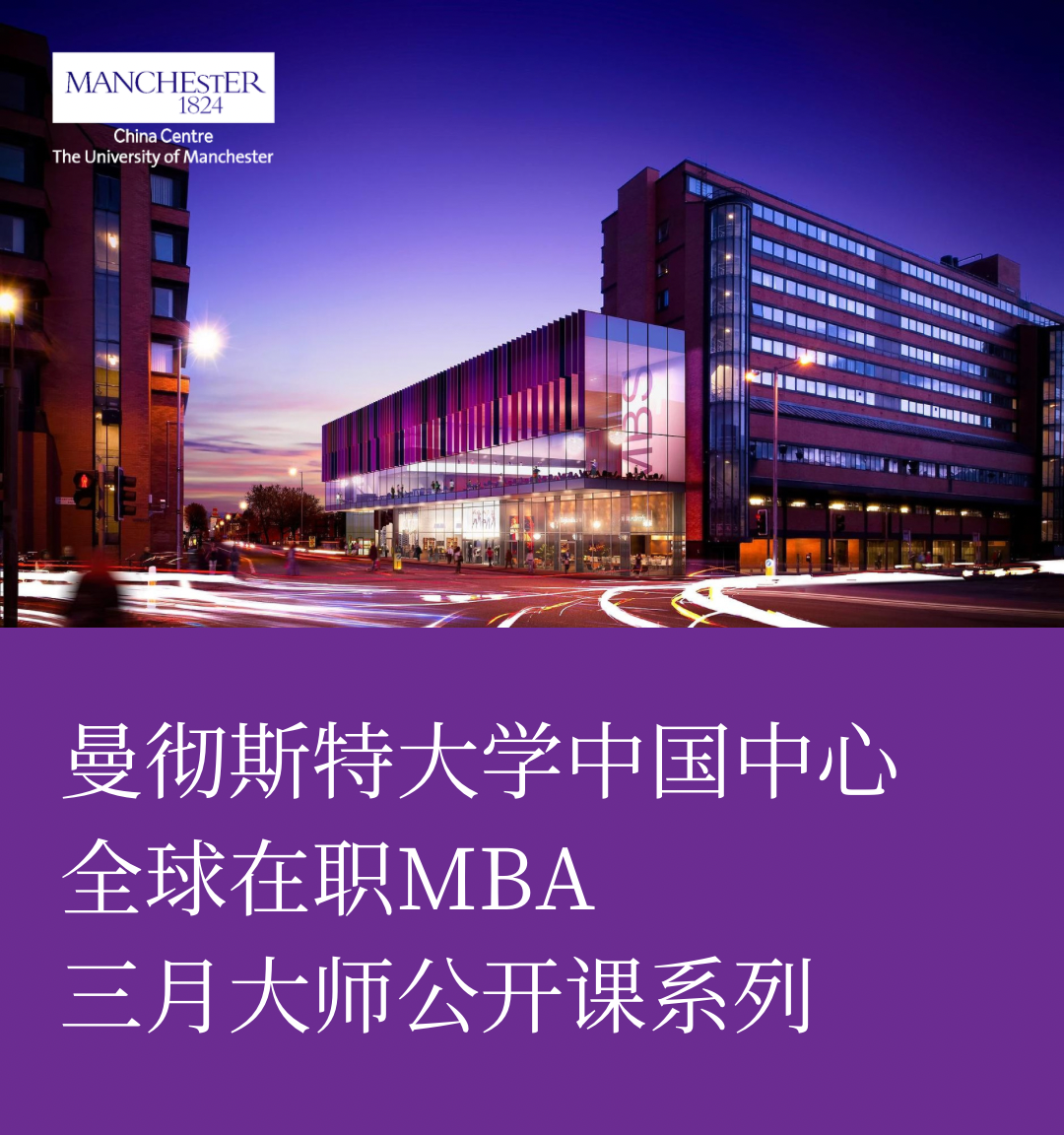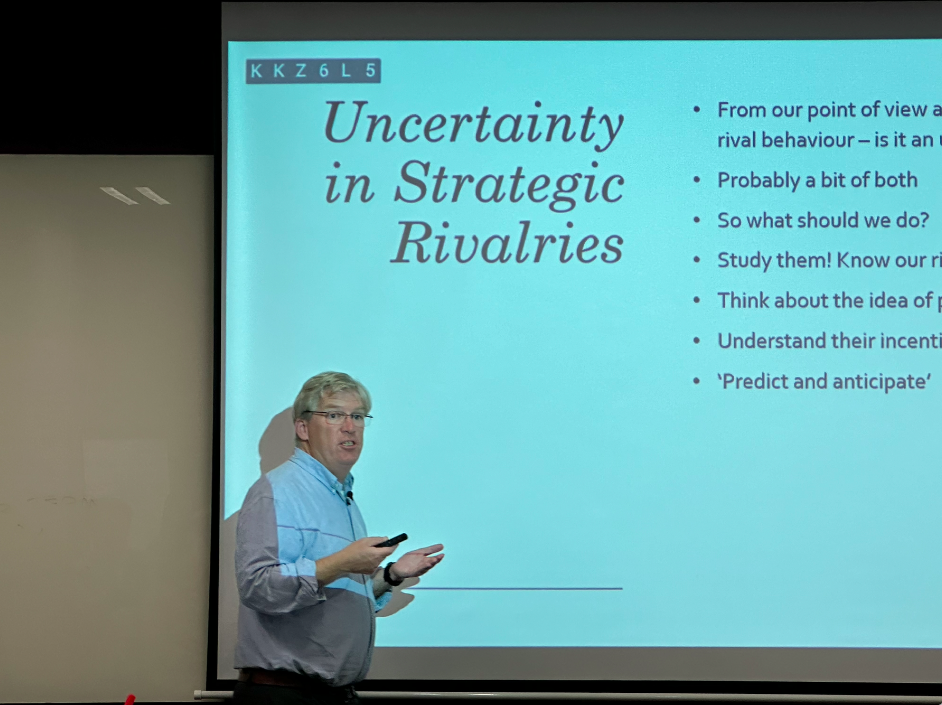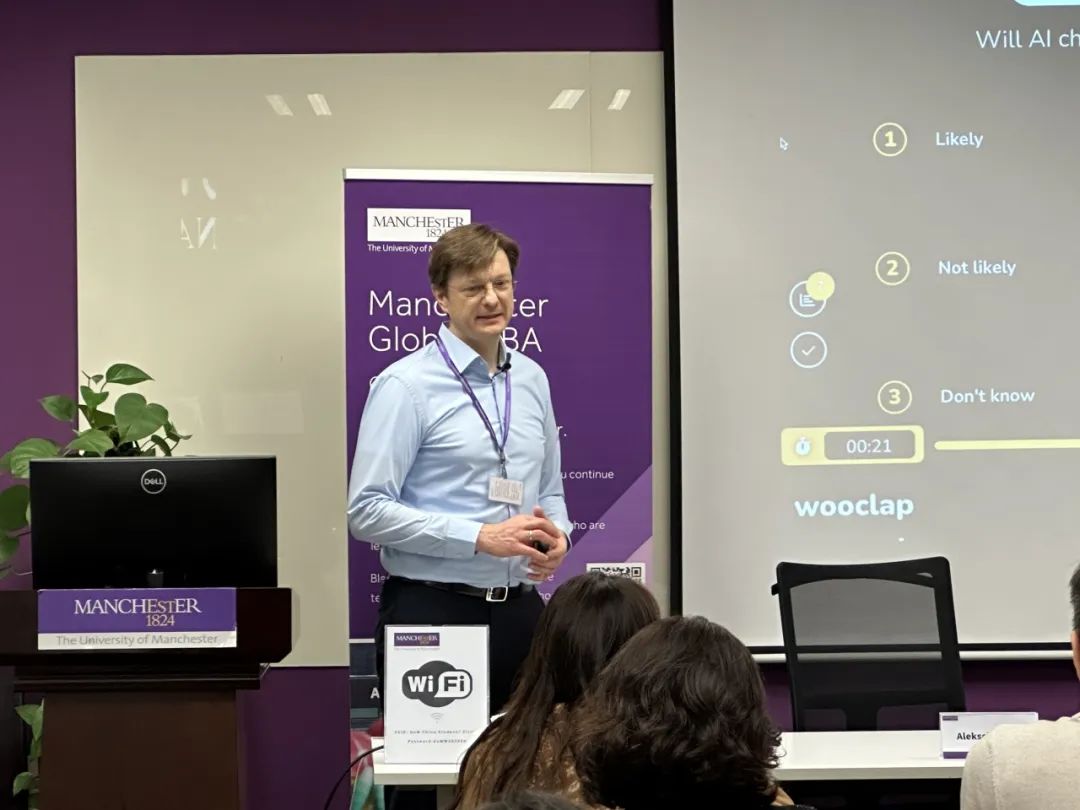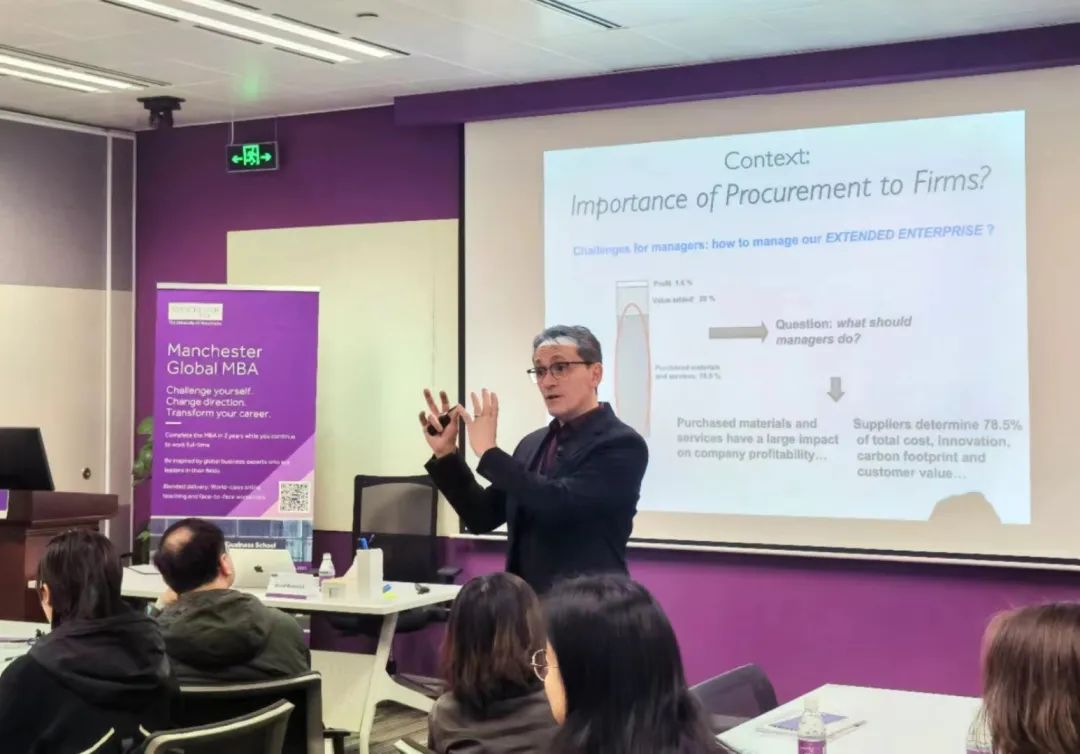菜单
日期:2024-03-24 浏览:2565作者:曼彻斯特大学中国中心

新春三月,曼彻斯特大学中国中心在上海举办了三场大师公开课。中国中心有幸邀请到三位来自曼彻斯特大学商学院的明星教授,与曼大学员、校友以及全球在职MBA申请人共同探讨当前最热门的商业话题。

On March 11th, Dr Rick Audas shared his insights on strategy, game theory and decision-making: a taster for strategy and competition. He mentioned that decisions or problems are on three levels: routine problems, hard problems and wicked problems. He analyzed uncertainty's role in strategic rivalries, emphasizing tailored approaches to decision-making.
Dr Rick explained that economics, as a lens for understanding behaviour, focuses on incentives and firm behaviour in competitive markets. Quoting Sun Tzu's "The Art of War," he stressed the importance of understanding both oneself and the rival to anticipate strategies effectively.
At the end of the open class, Dr Rick concluded that economics is a way of thinking and provides a different lens for looking at the world. We believe it’s particularly well-suited to describe business situations; however, at its core, this is about understanding behaviour. We believe this insight is crucial to the strategic and tactical decisions firms make. However, we also think it adds a significant perspective to the internal management of firms and how we manage our customers, our suppliers and our employees.
At The University of Manchester, we take original ideas from leading thinkers and apply them to strategic situations. We take a slightly different lens on the world. A different lens gives a different perspective. Diversity in perspective leads to better decision-making.

The rapid development of generative AI technology has brought about exciting new prospects for digital marketing, while also presenting unprecedented challenges to traditional marketing methods. How to seize the opportunities and meet the challenges in this technological revolution has become an urgent issue for industry practitioners and managers.
Dr Aleksej Heinze, Associate Professor of Digital Marketing at Alliance Manchester Business School, used rich data and real-world examples to reveal the impact of generative AI on personal life, work, and various industries. He also explored the innovations, challenges, and potential development opportunities it brings to the field of digital marketing. Dr. Heinze also conducted an analysis of the limitations of current generative AI in content creation and marketing, proposing corresponding solutions. He advised practitioners in the marketing industry to address the challenges posed by AI by first gaining a deep understanding of it, cultivating data literacy, mastering relevant technologies and tools, fostering strategic thinking skills to enhance adaptability to technology, and lifelong learning.
During the interaction with Dr. Heinze, the participants shared their experiences and observations of generative AI in their lives and work, offering various perspectives and insights. They recognized that continuous improvement of thinking skills, technological application capabilities, and lifelong learning practices are key to enhancing one's indispensability in the marketing field.

On March 18, Professor David Bamford, Chair in Operations Management brought an unparalleled depth of knowledge to this session. Serving as a taste of the University’s Global MBA programme, the event showcased his expertise in the elective on Strategic Supply Chain Management, drawing high anticipation and attendance.
The session delved into the nuances of strategic supply chain management, emphasizing relationship management, formal and informal mechanisms, and the concept of infinite games. In addition, Professor Bamford explored the 'Dependency Model,' analysing the complexities of the supply chain interdependencies and effective negotiation strategies from our dimensions: Opportunistic Behaviour, Adversarial, Strategic Collaboration, and Tactical Collaboration.
Interaction between Professor Bamford and the audience was a cornerstone of the event, fostering a dynamic learning environment. Through this engagement, the session illuminated how these strategic concepts could be applied in real-world scenarios, particularly benefiting working professionals in China. Attendees gained insights into improving supply chain efficiency and navigating complexities within their industries, demonstrating the practical implications of the theories discussed.
Open Class Series signifies China Centre's commitment to fostering lifelong learning and professional development. By bridging the University's academics with local industrial experts, China Centre continues to play a pivotal role in advancing the discourse on global business practices, positioning itself as a hub of academic excellence and industry relevance. Stay tuned for our upcoming masterclass in April!